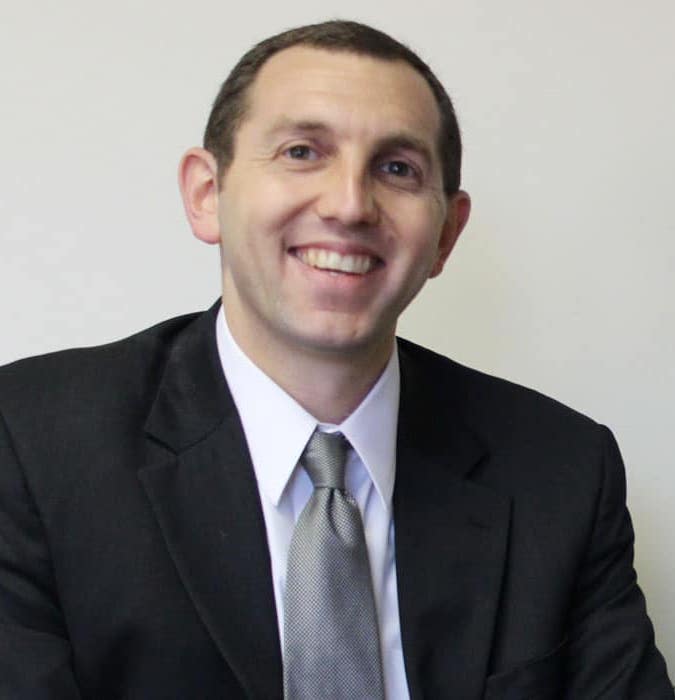5 Examples of Juvenile Offenses and When to Hire a Juvenile Attorney
The most common juvenile offenses in Florida may surprise you. It’s easy to think of juvenile charges as less serious. Maybe the crimes that spring to mind are things like underage drinking, trespassing, and vandalism. In fact, few juveniles in Florida are arrested for this type of offense. For example, in the 2020-21 fiscal year, 445 of 31,612 juvenile arrests were for alcohol offenses. That’s about 1.4%. Vandalism-related juvenile arrests were about as common as those for alcohol offenses: 458 during the same period. The number of trespass offenses resulting in a juvenile arrest was slightly higher, at 588.
Unfortunately in Florida, there were more juvenile arrests for armed robbery than for either vandalism or alcohol offenses.
Of course, this doesn’t mean that Florida juveniles are more likely to commit armed robbery than to spray paint the side of a building or sneak a beer. But it does mean that juveniles who commit serious offenses–especially violent offenses–are more likely to be arrested and routed into the juvenile justice system than those who have committed less serious offenses. And as you might expect, if a juvenile is arrested for a more serious offense, then they are also likely to face more serious potential penalties. So if your child has been accused of a juvenile offense, it’s important to get advice from a juvenile defense attorney as soon as possible.
The Most Common Juvenile Offenses in Florida
The most common offenses that lead to juvenile arrests in Florida were charges of assault and charges of battery. Now many people think that assault and battery are the same charge and in some jurisdictions the terms assault and battery are used interchangeably. But in Florida assault is a separate crime from battery and each have their own distinct definitions. Assault deals more with putting a person in apprehension of imminent harm, while battery deals more with engaging in an offensive touching or causing bodily harm. That said during the fiscal year of 2020-21, 8,014 juvenile arrests for charges of assault and for charges of battery. That’s more than 25% of all juvenile arrests during that time period. More than 33% of those charges–2,869–were for charges of aggravated assault or aggravated battery, both of which are felonies in Florida. The remainder would have been misdemeanors.
The remaining most common juvenile offenses in Florida are listed below:
Burglary
Burglary is defined as entering or remaining within a structure or conveyance with the intent to commit an offense therein. Now during the fiscal year 2020-21, there were more than 4,000 juvenile arrests for burglary, making it an extremely common basis for juvenile arrest. Burglary allegations accounted for 12.8% of all Florida juvenile arrests that year.
Theft
Theft crimes are unfortunately also quite common as a basis for a juvenile arrest in Florida. In fact there were 3,673 juvenile arrests for theft during the 2020-2021 fiscal year. As such, theft related arrests made up 11.6% of all juvenile arrests. It is also noteworthy that nearly half of these offenses involve theft of a vehicle, which in and of itself is a felony. Thus it is unsurprising that more than 70% of juvenile theft arrests involve felony offenses.
Drug Offenses
Drug offenses account for about 5.5% of Florida juvenile arrests. About 66% of those offenses would be felonies in the adult criminal system. Further, it is important to understand that in Florida juveniles can still be charged with felony offenses even if their case remains in juvenile court.
Weapon and Firearms Offenses
Weapons and firearms offenses trail the other offenses on this list, but there were still well over a thousand juvenile arrests for weapons and firearms offenses during the fiscal year or 2020 to 2021. This remains significant as more than 87% of these were felony-level offenses.
It’s also worth noting that a significant percentage of juvenile arrests involve probation violations. If your child is offered probation or has been placed on probation, it’s critical that you fully understand the terms of probation, including both prohibitions and affirmative obligations. You must clearly convey those requirements to your child, make it clear that you take them seriously, and explain the possible consequences if they violate the terms of probation.
The Bottom Line on Florida Juvenile Crimes
Juvenile offenses are often more serious than most people expect, and so are the possible consequences. Many people don’t realize that juveniles can be detained, or that juveniles whose cases are transferred to adult court can be sentenced to adult prisons and to lengthy terms of imprisonment. In fact, based on recent changes in the law, there are scenarios where courts can now impose life sentences to juveniles charged as adults provided certain opportunities for review exist. So if your child is facing juvenile delinquency allegations, it’s very important that you get accurate information about issues like:
- Is your child being detained pre-hearing?
- Are there grounds upon which a child’s detention status could be challenged or changed?
- Could your child be sentenced to a detention facility or a program?
- If so, what level would this program be and what does that ultimately mean for your child?
- What options does your child have in regards to handling their juvenile delinquency case?
- What will be required of you if your child is placed on probation?
- What direct consequences would stem from your child’s conviction of the charged offense?
- What indirect consequences, such as expulsion from school or loss of opportunities, might your child face?
- Is your child at risk of being transferred to adult court?
- What happens if your child is placed on probation and violates the terms of that probation?
The best source of that information is an experienced Florida juvenile criminal defense lawyer.
When Do I Need a Juvenile Criminal Attorney?
If you’re wondering whether you should consult a defense attorney about your child’s juvenile charges, the answer is probably yes. It’s easy to make serious mistakes in the juvenile justice system. That’s especially true because the early stages of the process are informal compared with the adult criminal system. The more relaxed environment can lead parents and children alike to let their guard down in ways that may work against them as the case moves forward.
It’s generally best to retain a juvenile defense attorney before you or your child speaks with anyone about the case. But even if your child has already spoken with a member of law enforcement, know that it isn’t too late to seek counsel.
While a juvenile criminal defense attorney can be beneficial in any type of juvenile proceeding, there are some sure signs that you should consult a lawyer experienced with delinquency allegations. Some of the most significant include:
- Your child has been detained pending the hearing, or it’s been suggested that they may be detained
- The allegations against your child are serious, such as an offense that would be a felony if charged in adult court or a situation in which someone has been injured
- Your child is at risk of being transferred to adult criminal court
- This is not your child’s first juvenile proceeding
- Your child is currently on probation
If you’re unsure what to do, it is always best to err on the side of caution and consult with a juvenile defense attorney. An adjudication of delinquency can impact your child in ways you may be totally unprepared for. Criminal law attorney Matthew Lufrano has extensive experience with both juvenile proceedings and adult criminal prosecutions. He is prepared to represent juvenile defendants in delinquency proceedings, fight transfer to adult court and, if necessary, provide full representation in the adult criminal courts.
He understands how stressful and confusing this time can be for parents, and knows how important it is that you have accurate information as early in the process as possible. Schedule your consultation right now to get the knowledgeable guidance your family needs. Just call 904-513-3905 or fill out the contact form on this site.

Since graduating from law school and passing the Bar Exam in 2009, Matthew Lufrano has practiced exclusively as a criminal defense attorney and his sole focus has been defending the rights of the accused. As a defense attorney, Mr. Lufrano has tried 75 jury trials to verdict and in 2017 the Florida Bar recognized Mr. Lufrano as a Board Certified Expert in Criminal Trial Law. Today Mr. Lufrano not only owns and operates Lufrano Legal, P.A., but he also serves as the President for Jacksonville’s local chapter of the Florida Association of Criminal Defense Lawyers.
